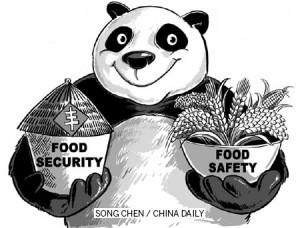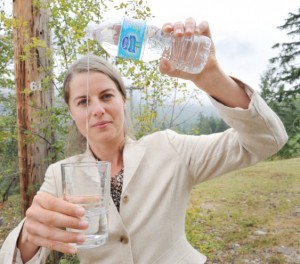The food safety issues have persisted in China for the past decade. Based on my personal experience as well as research results, I think the underlying reason for the prevalent food safety issues in China is its loose monitoring and inspection system of manufactured agricultural goods. While the Chinese government took firm action against multinational food companies that had potential food safety issues, individual farmers who sell their fresh produces on the market on a daily basis seemed to be neglected. Therefore maybe more efforts should be diverted to regulate the latter as well. After all, majority of the ordinary citizens in China are still used to buy the fresh produces sold on the market from the farmers every day.
The article also mentions that China’s increasing demand for more food and better quality food has attracted investments worldwide. Hopefully with more incoming multinational food businesses, the governments’ limits in ensuring food safety could be overcome. More collaboration and communication between food safety administrations and food companies should be established to ensure regulatory compliance of the law.
Also, from another news article on Forbes, the U.S. has recently considered letting China join the negotiations of what would be the world’s largest free trade agreement, the Trans-Pacific Partnership. Engaging in free trade would benefit China economically to a large extent, hence it is essential for China establish high food industry standards to make sure that its notoriety of food safety would not drive trade partners away.
Image and Website Sources:
http://www.forbes.com/sites/jackperkowski/2014/09/25/chinas-growing-food-problemopportunity/
http://usa.chinadaily.com.cn/opinion/attachement/jpg/site1/20140121/00221917f7601447f88303.jpg

